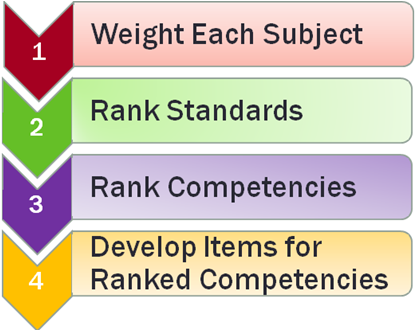Stage 3: Committee Selection
 |
Dr. Tasneema Ghazi heads the National ISST Committee comprised of Islamic scholars, professors, and certified teachers and principals working within the Islamic school sector. Since 2010, the committee has diligently worked to help teachers determine what is important and appropriate for children to know at each grade level for grades 2 - 8.

|
Stage 4: National Islamic Studies Standards Development (NISS)
ISST committee members worked to design standards that ensure real understanding of material by diving deep into topics that will help improve content retention. Makers of the NISS took into account learning styles that children today are accustomed to when being educated in subjects such as math, science, social studies, and language; writers strategically established a connection between these subjects and Islamic studies topics. At the same time, standards were designed to include a practical approach that encourages instructors to teach Islamic topics that focus on what students use in life. The underlying principle of the NISS is to develop strong, intelligent, and knowledgeable Muslims who will positively contribute to society.

Stage 5: Item Writing Training
Committee members underwent professional item writing training lead by Dr. Denis Jarvinenand MonaStiversprior to developing questions for the Islamic Studies Standardized Tests (ISST). Training ensured that test questions are:
√ Clear and Concise
√ Unbiased
√ Age Appropriate
√ Aligned to learning standards

Stage 6: Item Development
A blueprinting phase initiated the process of item writing. Members met to conduct the following procedure:

This process helped determine the number of questions to ask for each subject and the competency to test for selected standards. ISSTitems were written and designed by experienced Islamic studies teachers. Each item went through a panel approval to ensure the criterion in stage 5 was met.

Stage 7: Pilot Program
To ensure test questions effectively measure student understanding of course material, tests were nationally piloted in Islamic day schools across North America. Items were reviewed by Dr. John Wickand Dr. Denis Jarvinen to ensure test validity and reliability.
2010, ISST First Edition Pilot, Illinois:
Al-Aqsa School
Bridgeview, IL |
Islamic Foundation School
Villa Park, IL |
College Preparatory School of America
Lombard, IL |
MCC Full Time School
Morton Grove, IL |
Furqaan Academy
Bolingbrook, IL |
Universal School
Bridgeview, IL |
2013, ISST Second Edition Pilot, Illinois:
Al-Iman School
Raleigh, North Carolina |
MCC Full Time School
Morton Grove, Illinois |
Islamic School of Irving
Irving, Texas |
Universal School
Bridgeview, Illinois |

Stage 8: National Implementation
The Islamic Studies Standardized Tests was launched to schools as of spring 2010. Within three years the ISSThas been adopted by 35+ schools in over 20 states. The assessment has been immensely successful and has since been adopted by additional schools each consecutive year.

Stage 9: Test Augmentation
The first edition ISST tested students on two subjects per grade. For example students in grades 2, 4, 6, 8 were tested on Sirah and Islamic History whereas students in grades 3, 5, 7 were tested on Aqidah, Fiqh, Akhlaq and Quranic Studies. Based on positive feedback from teachers and school administrators the tests have been expanded to measure students’ knowledge in all four subjects within each grade. In addition, committee members used data collected from student performance in the previous three yearsto revise test questions to better measure student understanding of core concepts.Second edition tests will be available for schools as of spring 2014.
Due to the overwhelming response of the ISST, the national assessments will soon be available to part-time schools in North America and Islamic schools abroad.

|